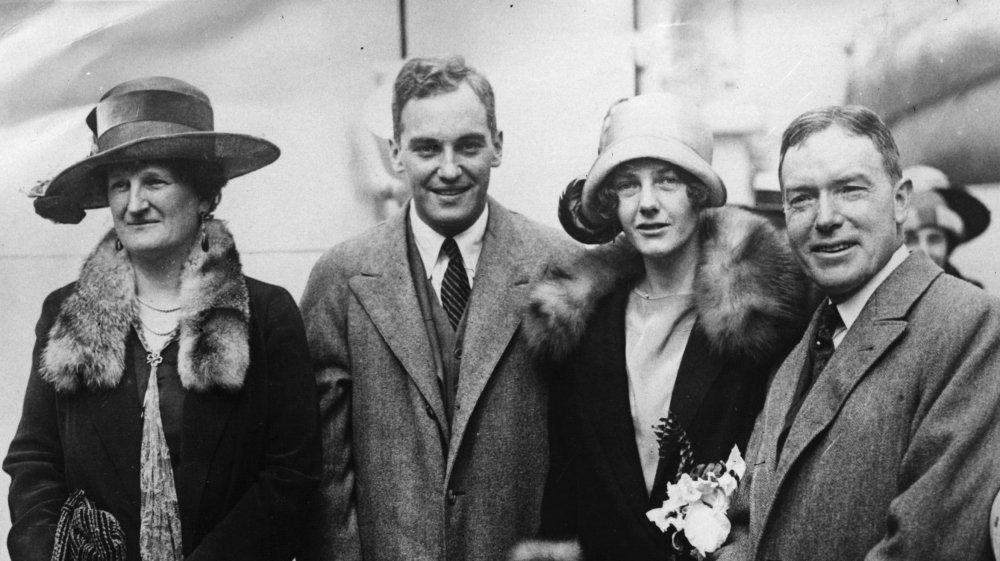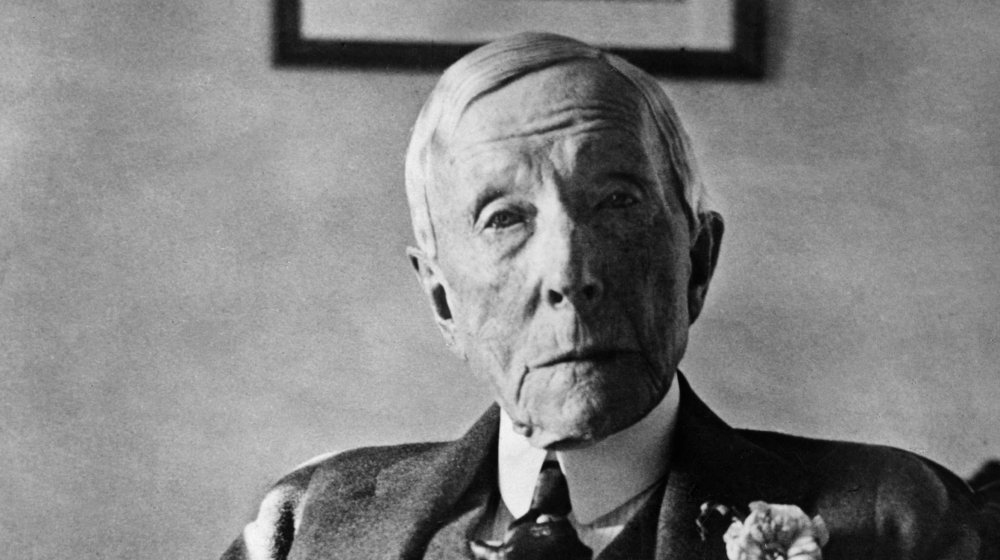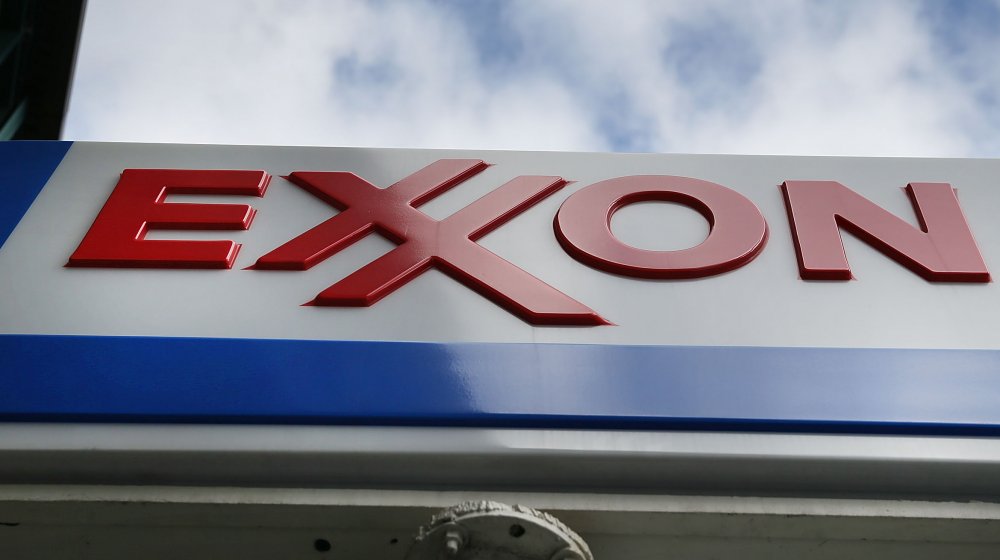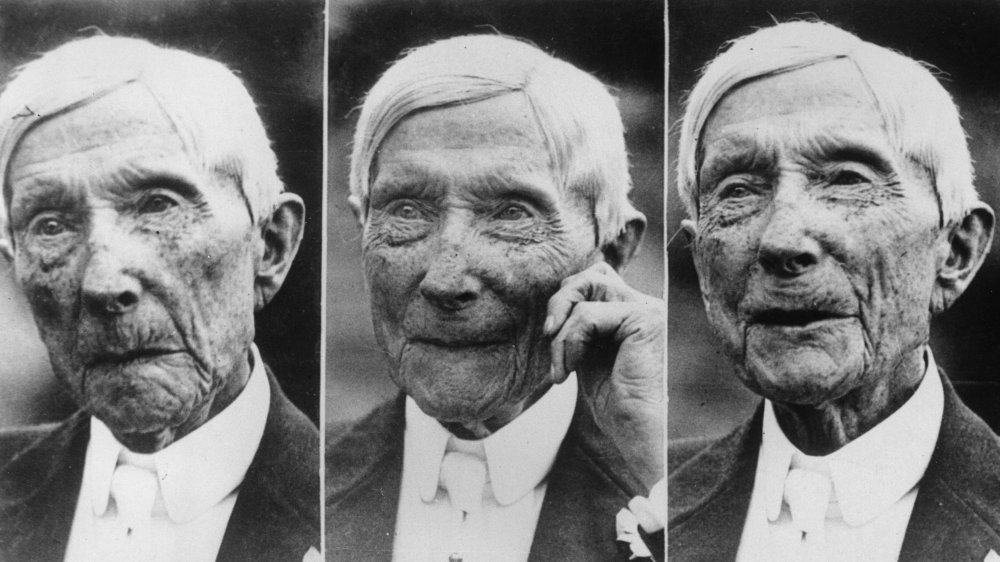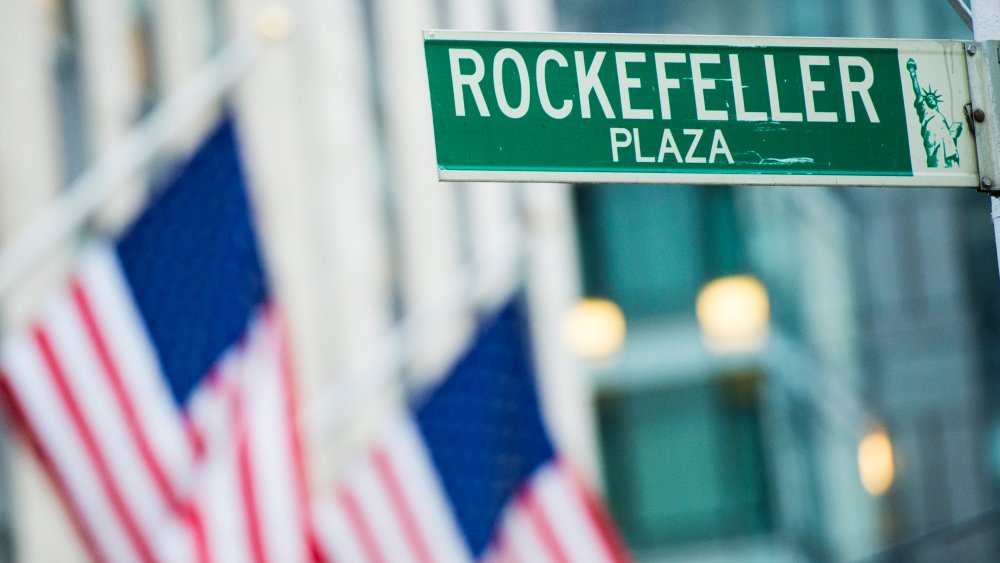Here's How Much Money The Rockefellers Are Actually Worth Now
We're all at least passingly familiar with the name "Rockefeller." Some people might know the history of the family, while others just know that there's a square named after them, which is impressive in its own right, since most of us won't even get mentioned in the same sentence as a trapezoid after we're gone. In either case, mentioning the entrepreneurial dynasty conjures, at the very least, vague images of Monopoly men ordering new gilding for their bathrooms or complaining that the caviar pulled from the egg sacks of their cloned dinosaur fish is "too chewy" for their solid-diamond dental implants or whatever it is that the preposterously wealthy do on Sundays.
Schoolhouse Rockefeller
The facts are these: in the latter half of the 19th century, a new legend of commerce pushed himself into the public consciousness: John D. Rockefeller, the economic juggernaut born of a strict, thrifty mother and a verified con-man of a father. John built an American empire the drink-your-milkshake way, refining oil and using the proceeds to refine more oil. The resulting business, Standard Oil Company, became a kaiju monster of capitalism so big that you probably don't realize how much of your life you've spent in its wake. After a government ordered breakup of its holdings, Standard Oil became several small mom-and-pop operations with names like Exxon, Chevron, and Mobil.
Needless to say, sweet Johnny did alright for himself financially, eventually holding a personal net worth which, adjusted for inflation, comes out to around $360 billion in today-money, or roughly, calculated in metric terms, "a Scrooge McDuck gold pool-worth." He was described in an otherwise scathing exposé as "the most successful man in the world — the man who has got the most of what men most want." The article, written by acclaimed muckraker Ida M. Tarbell, starts out with a passage from Macchiavelli's The Prince, if that gives any indication of how people came to view the oil magnate. But we digress.
John Rockefeller passed away in 1937, leaving behind four surviving children, a legacy of American go-gettishness, and a series of trusts under the control of his male descendants. This begs the question: the better part of a century later, how's that going for them?
The Rockefeller Explosion
By the time of his death at age 97, Rockefeller had been effectively retired for around forty years. Deeply interested in philanthropy, he had donated significant portions of his paycheck to charity starting at age 16, and the habit seemed to die hard. Philanthropy Round Table estimates that, through his various contributions, John gave away more than half a billion dollars in his lifetime, helping to found Chicago University and fund schools dedicated to the education of former slaves. Add to that his penchant for owning massive estates, his love of golf, and his habit of handing dimes to successful businessmen as a hilarious joke, and you might think that the family coffers were looking a little dry when he finally crossed that oily rainbow bridge.
The face of money
But being personally responsible for an estimated 1.5% of the U.S. economy means having a bank account that's difficult to dent. According to Forbes, in 2016, the remaining Rockefellers had a combined net worth of $11 billion, making them the 23rd wealthiest family in America. While it's nowhere close to the fat, swinging fortune that John himself wielded at the time of his death, and was as of that point spread out over 174 living descendants, try not to get too snippy about it. You're still eating off the dollar menu while they, presumably, hunt pandas with the solid platinum family blunderbuss.
Onward, into the future
What's more fascinating is what the Rockefellers have chosen to do with their fortune. Namely, at least in part, fighting oil companies. As early as 2003, members of the family were proposing resolutions at Exxon board meetings to investigate the role of fossil fuels in climate change. In 2008, John's great-granddaughter invoked the name of the man himself, pointing out that alternative energy sources had been a cornerstone of John's business since he first said "maybe we should dig for oil instead of pulling it out of whale carcasses." The whole thing came to a head in 2016, when members of the family, charging under the flags of two Rockefeller charitable organizations, sued ExxonMobil for misleading the public with regards to the realities of global warming. On top of that, the Rockefeller Foundation has funded efforts which led to the vaccine for yellow fever, the evacuation of Jewish scientists from Nazi Germany, and the establishment of the Johns Hopkins School of Public Health.
They also funded German poison gas development in the early 20th century and irradiated a bunch of pregnant women in the 1940s as sort of a "let's see what happens" experiment. History is complicated.
